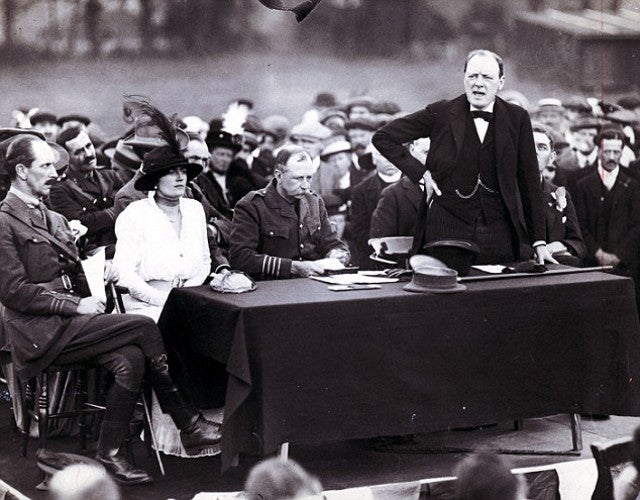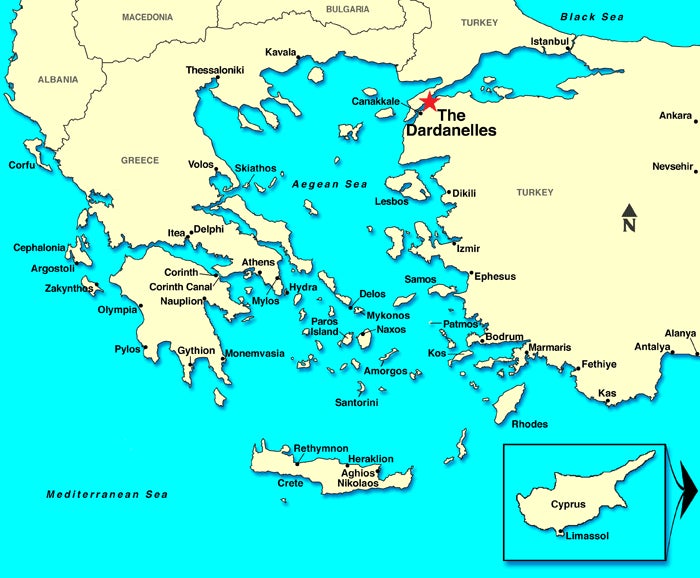With the war along the Western Front at a standstill in early 1915, allied leaders were looking for ways to break the stalemate. Many were worried that the deadlock might be permanent. Lord Kitchener, the British secretary of state for war, reluctantly conceded that operations needed to be established elsewhere.
Breaking the Stalemate
That “elsewhere,” argued Winston Churchill, the First Lord of the Admiralty, should be far away from Europe. He, along with many of his colleagues, became enamoured with the idea that a strike at the heart of the Ottoman Empire through the Aegean Sea could dramatically alter the complexion of the war, if not win it outright.
Churchill visiting a chemical factory in 1915 (CC)
Hindsight being what it is, it’s easy to dismiss Churchill’s grand plan as fanciful thinking. But at this stage in the war, many military thinkers were reluctant to acknowledge the supremacy of the defence and the resulting onset of attritional warfare, and remained convinced that a single, decisive battle could win the war.
But the idea of using the British fleet to force the Dardanelles and take Constantinople — the seat of the Ottoman Empire — was a prospect too enticing to ignore. It was a strategy that, if successful, would reap a trove of benefits.
First and foremost, a strike on the Dardanelles would open a new theatre of operations for the Turks to deal with. In early 1915, at the height of the Sarikamish crisis (an Ottoman offensive in the Caucasus), the Russians were pleading with its Entente allies for a diversionary operation against the Turks. Indeed, by launching an attack force directly at Constantinople, the allies would force the Turks to dispatch troops that were badly needed elsewhere.
Today, Constantinople is Istanbul in Turkey (rip.rs)
Conceivably, the Turks would be thrown into such a crisis that its leadership would either surrender or be overthrown in a coup. With the port secured, the Entente could open a warm-water shipping lane for its eastern ally, the Russian Empire. By controlling the Sea of Marmara and the entrance to the Black Sea, Russia would have access to the entire Mediterranean world — and vice-versa; arms could be shipped to Russia by its allies and the United States, while allowing Russia to export precious grains to regions in need.
At the same time, an allied victory at the Dardanelles would secure Egypt and the Suez canal. It might even bring some wavering neutrals into the war, including Greece, Bulgaria, and Romania. Such a dramatic development would significantly upset the balance of power in the Balkans.
With all this in mind, it should come as little surprise that many Germans perceived the ensuing attack on the Dardanelles and Gallipoli as the most important military campaign of 1915.
This air of uncertainty and lack of resolve would go on to plague the campaign and contribute in no small way to its ultimate failure.
Read the Remainder at Gizmodo



0 thoughts on “World War I History: Gallipoli”